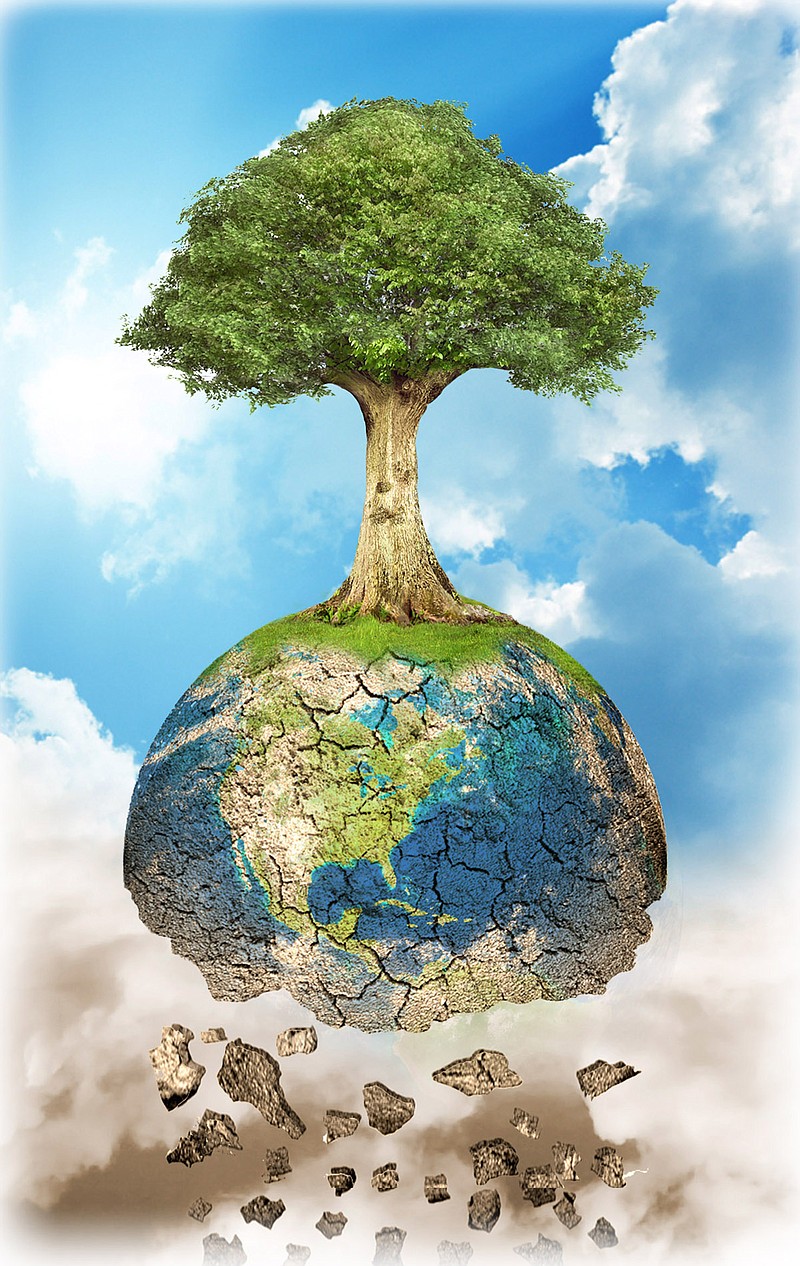"What does it mean to be alive right now? Right now. Right this second, right this epoch, as mankind alters the Earth beyond recognition. ... Being alive right now means rethinking boundaries, pushing on the walls of your imagination. It means feeling around in this world for another one."
Those are the words of Washington Post reporter and feature writer Dan Zak in a January article about understanding climate change. The piece was headlined "Everything is not going to be okay: How to live with constant reminders that the Earth is in trouble."
One of those reminders might be the ominous heat wave gripping much of the United States this week. The life-threatening combination of heat and oppressive humidity prompted excessive heat warnings and heat advisories in at least 22 states. The National Weather Service says 51 percent of the Lower 48 states are likely to see air temperatures reach or exceed 95 degrees through Wednesday, and 85 percent will have temps above 90.
What we're less likely to grasp is how all this extreme heat has crept up on us.
Last month was the hottest June in 139 years of record-keeping, according to NASA. If the emissions of heat-trapping gases continue to increase at the current pace, the United States is projected to have twice the number of extremely hot and humid days that feel like at least 100 degrees, according to a study by researchers at the Union of Concerned Scientists.
Government researchers see problems, too. A major climate assessment published by the Trump administration in 2018 found extreme heat events are on the increase in the United States (and have been since the 1960s). Such events, the report found, are already harming people, livestock and infrastructure. Data shows heat waves are affecting 50 major cities in the U.S. more frequently now than several decades ago, increasing from twice per year during the 1960s to nearly six heat waves per year in the 2010s. (Trump's response to the overall report was that he didn't believe it. And his administration has suggested it will phase out some of the data-keeping.)
But even without data, we can - to paraphrase reporter Dan Zak - rethink boundaries, push on the walls of our future and feel around in this world for tomorrow's world.
For example: If you have an infant daughter or granddaughter, she is expected to live 81.1 years, meaning she'll have seen Chattanooga's average temperature rise 3-5 degrees F by 2050 and 5-9 degrees by her 81st birthday. Tennessee's major cities have already warmed about 2 degrees since 1950.
When today's 70-year-olds were born, the planet had about 2.5 billion people on it. Today, earth's population has grown to about 7.3 billion.
"That's the riddle," Zak wrote. To grasp the problem, we have to slow down. To respond to it, we have to act fast. We have both no time and more time, NASA climate scientist Kate Marvel told The Washington Post. Climate change is a slope. We can ease our descent. But we don't think about it this way: "We want there to be a really simple story: You do this, and then everything will be okay," Marvel said. "And everything is not going to be okay."
Enter, faith. And a new way to looking at climate change. Ask Katharine Hayhoe, one of America's top climate scientists and an evangelical Christian. She's on a mission to persuade skeptics and help people rethink the boundaries that keep us from taking needed and sensible action before it's too late.
Last month at the Citizens' Climate Lobby conference in Washington, D.C., (also reported in The Washington Post by Dan Zak) the climate scientist married to an evangelical pastor and living in Lubbock, Texas, where she works for Texas Tech, understands the language of oilmen, ranchers, farmers and Christians. And, go figure, in D.C., she got a ballroom of climate activists to applaud fossil fuels. It was a start.
"What was life like before the Industrial Revolution?" Hayhoe asked her audience. Answer: Short. Brutal. Women's work was drudgery and economies were built on the backs of children and slaves. If God created the heavens and earth, he also created coal and gas and oil, which after a time we began burning to do our own creating. Health and wealth followed, along with consequences, including a changing climate that now endangers all creation.
"We humans have been given responsibility for every living thing on this planet, which includes each other," Hayhoe said. "We are called to tend the garden and be good stewards of the gifts that God has given us."
Did we mention that Hayhoe also is a lead author on the U.S. government's latest National Climate Assessment (the one Trump doesn't believe)? So on the day after she talked to the climate activists, she had a date with Congress - specifically the House Budget Committee. She talked about data. And cost. She told the congressmen the question of which climate change scenario we will eventually face - worst case or milder - "is not one science can answer. Instead, the answer is up to us." And talked about creation, faith and stewardship.
Then something amazing happened. Rep. Tim Burchett, R-Tennessee, thanked her for setting an example of environmental stewardship: "I think God has given us some great solutions" on climate, he said. "I just think we've turned our back on Him, in more ways than one. And we're not looking at what's going on around us."
But don't expect miracles. Burchett also looked to the back of the room at the young people watching - many of them climate activists - and added: "We're not gonna do a dadgum thing up here. You all are going to have to do it."
Let's get busy.
